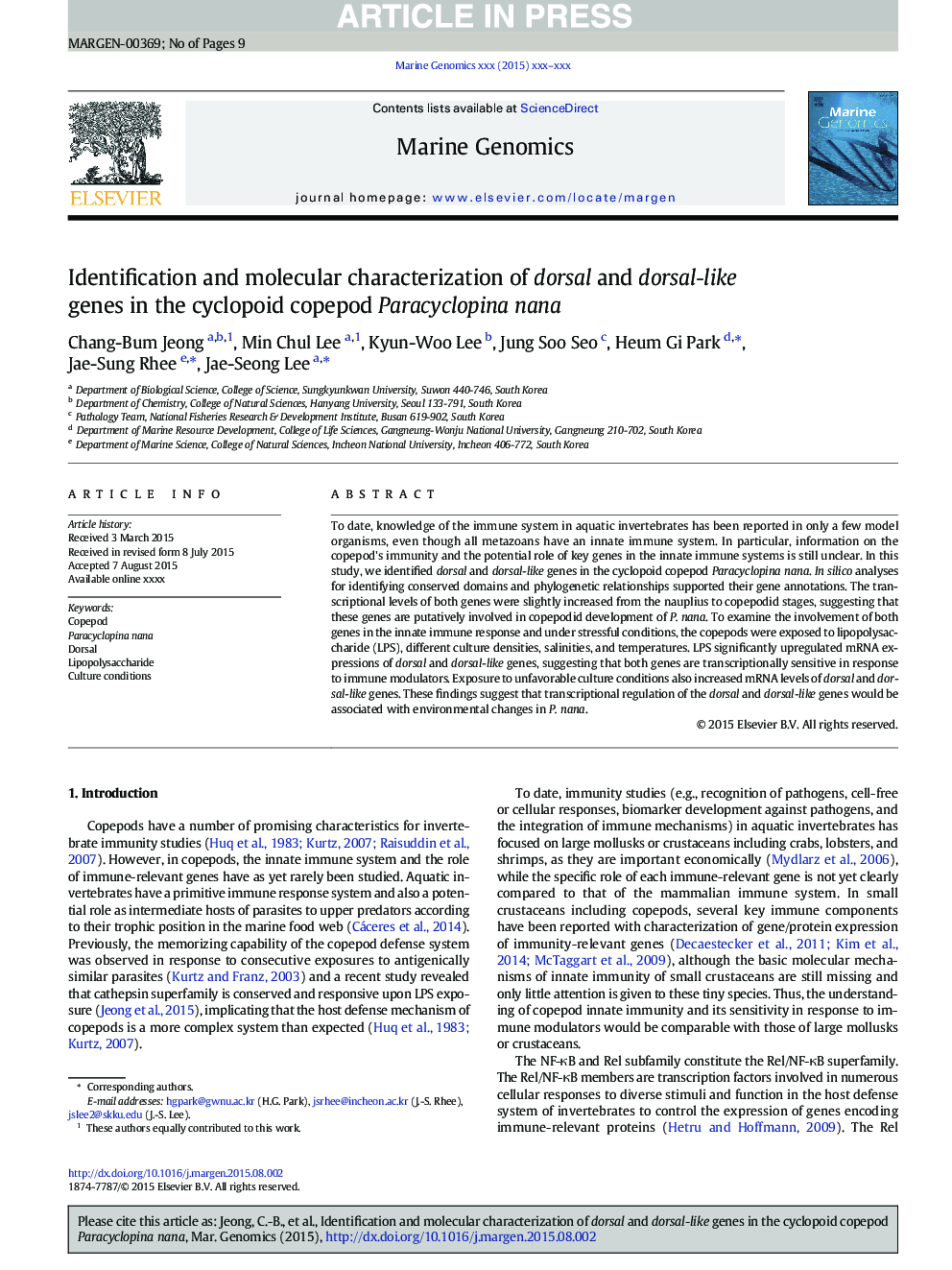| Article ID | Journal | Published Year | Pages | File Type |
|---|---|---|---|---|
| 10877924 | Marine Genomics | 2015 | 9 Pages |
Abstract
To date, knowledge of the immune system in aquatic invertebrates has been reported in only a few model organisms, even though all metazoans have an innate immune system. In particular, information on the copepod's immunity and the potential role of key genes in the innate immune systems is still unclear. In this study, we identified dorsal and dorsal-like genes in the cyclopoid copepod Paracyclopina nana. In silico analyses for identifying conserved domains and phylogenetic relationships supported their gene annotations. The transcriptional levels of both genes were slightly increased from the nauplius to copepodid stages, suggesting that these genes are putatively involved in copepodid development of P. nana. To examine the involvement of both genes in the innate immune response and under stressful conditions, the copepods were exposed to lipopolysaccharide (LPS), different culture densities, salinities, and temperatures. LPS significantly upregulated mRNA expressions of dorsal and dorsal-like genes, suggesting that both genes are transcriptionally sensitive in response to immune modulators. Exposure to unfavorable culture conditions also increased mRNA levels of dorsal and dorsal-like genes. These findings suggest that transcriptional regulation of the dorsal and dorsal-like genes would be associated with environmental changes in P. nana.
Related Topics
Physical Sciences and Engineering
Earth and Planetary Sciences
Earth and Planetary Sciences (General)
Authors
Chang-Bum Jeong, Min Chul Lee, Kyun-Woo Lee, Jung Soo Seo, Heum Gi Park, Jae-Sung Rhee, Jae-Seong Lee,
